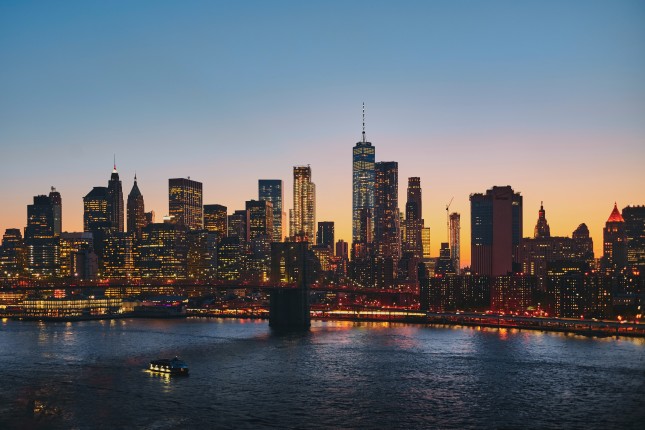-
Mary Hellmich, Tobias Bernstein, Transatlantic Climate Bridge
Transatlantic Subnational Climate Cooperation: Opportunities for Implementation
October 14, 2022 By Wilson Center Staff
Diplomacy between cities, counties, states and regions is critical to ensuring that diplomatic doors between countries are left open throughout changing political cycles at the national level. Such efforts are more important now than ever, especially for the climate crisis. As we head into COP27 with the message “from ambition to implementation,” cities have a critical role to play as the venues where many of the policies discussed at international climate negotiations will play out.
The subnational level has become increasingly important in keeping international climate diplomacy alive. Many conversations on the climate crisis ended during the Trump administration, which pulled the US out of the Paris Agreement and reversed course on much of the climate and environmental progress in the United States. Instead of engaging on climate via the White House, those four years relied on subnational efforts – through initiatives such as the “We Are Still In” coalition – to keep parts of the US in the fight against climate change. Building subnational-level partnerships across the Atlantic today will be critical for future-proofing international climate diplomacy moving forward.
Cities play an important role informing not only local, but also national and international policymaking. They possess expert knowledge on how citizens are directly affected by policies from all levels of governance and understand what is needed for current and future policies to be successful. This useful transfer of knowledge does not just flow from the city level up within the same country, but is also highly effective when extending between cities in different parts of the world. Through urban diplomacy, city administrations can learn from real experiences of successful policy implementation in other regions, particularly when sharing similar profiles. A city-to-city partnership where each side is comparable in population and size, economic scale, or business and industry sectors can help cities learn from the best (and worst) practices from others and, in so doing, accelerate the implementation and impact of policies back home.
Subnational partnerships can take a variety of shapes and do not have to adhere to a strictly “reciprocal” relationship, whereby City A provides something to City B and vice versa. The benefits of urban diplomacy don’t exist in a vacuum, and as such a more relevant concept is that of “diffuse reciprocity”: a willingness to contribute to expertise and experience without demanding immediate reciprocal benefits in return. Indeed, through diffuse reciprocity, urban diplomacy participants know that experience shared from City A to City B contributes to the overall knowledge-sharing milieu, which eventually can return to City A via an external third city. Building diffuse reciprocity networks between the US, Canada and Germany, or Europe more broadly, will strengthen diplomatic ties and create a rich pool of best practices for climate policy implementation.
Continue Reading on Transatlantic Climate Bridge
On 23 September 2022, the Transatlantic Climate Bridge (TCB) and the Woodrow Wilson Center co-hosted an Urban Diplomacy Roundtable on transatlantic subnational climate cooperation. The event gathered a group of experts across civil society, think tanks and academia to discuss the merits of transatlantic subnational partnerships in combatting the climate crisis and how an initiative like the TCB can best build and maintain such connections.
Photo Credit: The New York, NY, United States skyline in the distance, Courtesy of lucabravo/Unsplash.com.
 A Publication of the Stimson Center.
A Publication of the Stimson Center.



